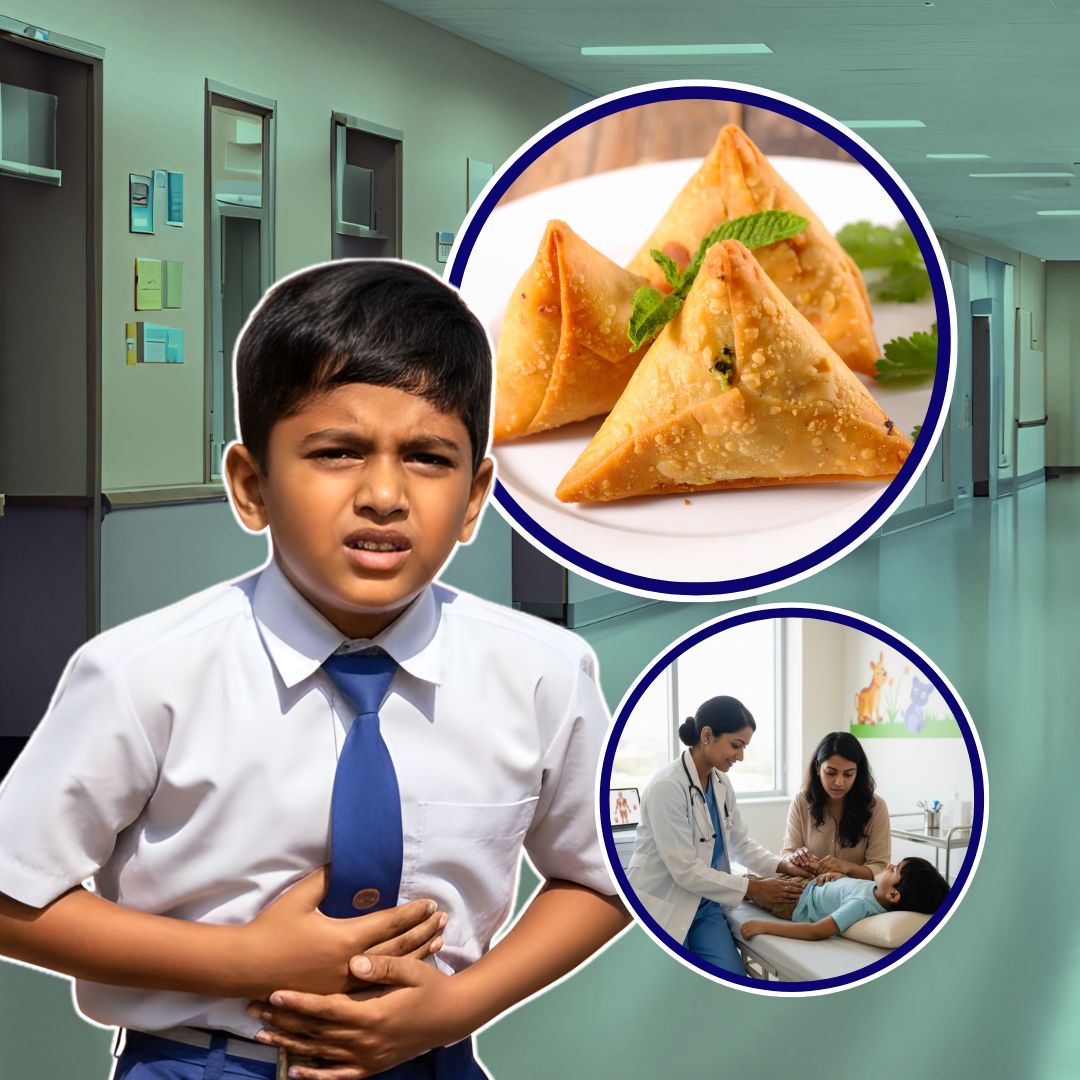On Monday, November 17, 2025, five students aged 10 to 11 fell ill after consuming samosas from the canteen of KVK School in Mumbai’s Ghatkopar. They were rushed to Rajawadi Hospital, where three were discharged later, and two remain stable under outpatient treatment.
The incident sparked an immediate investigation by police and health authorities, with a case filed against the school management and food supplier. Food samples have been sent for testing as the BMC and hospital officials work to determine the cause.
Incident Details and Official Responses
The children started experiencing symptoms including nausea, vomiting, dizziness, and abdominal pain shortly after eating the samosas during their break. School staff promptly alerted the parents and transported the affected students to the hospital.
According to TOI, Dr Bharti Mandal from the civic-run Rajawadi Hospital said the symptoms strongly indicated possible foodborne illness. “First two children came in complaining of nausea, followed by another three. After taking all their vitals and values, we placed all five children in a 24-hour observation period. But after some time in the evening, the parents came in and took away the children against our advice,” she said.
Parents expressed anxiety about the safety of food served in schools, demanding stricter oversight to prevent future incidents. Following the incident, the local police have launched an investigation to determine the cause of the health issues suffered by the children.
Background and Context on School Food Safety
This unfortunate event adds to an ongoing concern across Mumbai’s educational institutions regarding food hygiene and safety. Several schools have witnessed similar outbreaks linked to contaminated food in recent years, often attributed to improper storage, unhygienic kitchen environments, or lack of regular health inspections.
Last year, a major food poisoning incident occurred at a private school near Thane in Maharashtra, where 45 students fell ill after consuming the mid-day meal served on the school premises. The affected children, aged between 8 and 11 years, experienced symptoms such as nausea, headache, dizziness, and abdominal pain shortly after eating.
Initially, five students showed signs of sickness, but the number soon rose to 45, with 38 admitted to Kalwa civic hospital for treatment. The students were served a meal consisting of rice and moth bean (matki) curry, which was later suspected to be contaminated.
The Food and Drug Administration (FDA) officials promptly collected food samples to ascertain the cause. This incident had created significant unrest among parents and local residents, who demanded accountability from the school management and food suppliers.
Rampant Food Adulteration in India
Food adulteration remains a widespread problem in India, affecting a large portion of commonly consumed food items and posing serious health risks to consumers. Recent data from the Food Safety and Standards Authority of India (FSSAI) reveals alarming statistics: in 2024–25, nearly 26% of food samples tested nationwide failed to meet safety and quality standards.
Paneer has emerged as the most adulterated food product, with 83% of samples tested in Noida and Greater Noida found substandard, and 40% deemed unsafe due to contaminants like palm oil, synthetic chemicals, and acetic acid. Other frequently adulterated items include milk, edible oils, spices, and fruits.
The Logical Indian’s Perspective
Children’s health is paramount, and ensuring the safety of food served in schools transcends administrative formalities; it is a profound ethical obligation.
The KVK School incident should serve as a wake-up call for schools, local authorities, and food suppliers to collaborate transparently and enforce strict hygiene standards consistently. Protecting young learners from preventable health hazards fosters trust and nurtures a secure learning environment.












